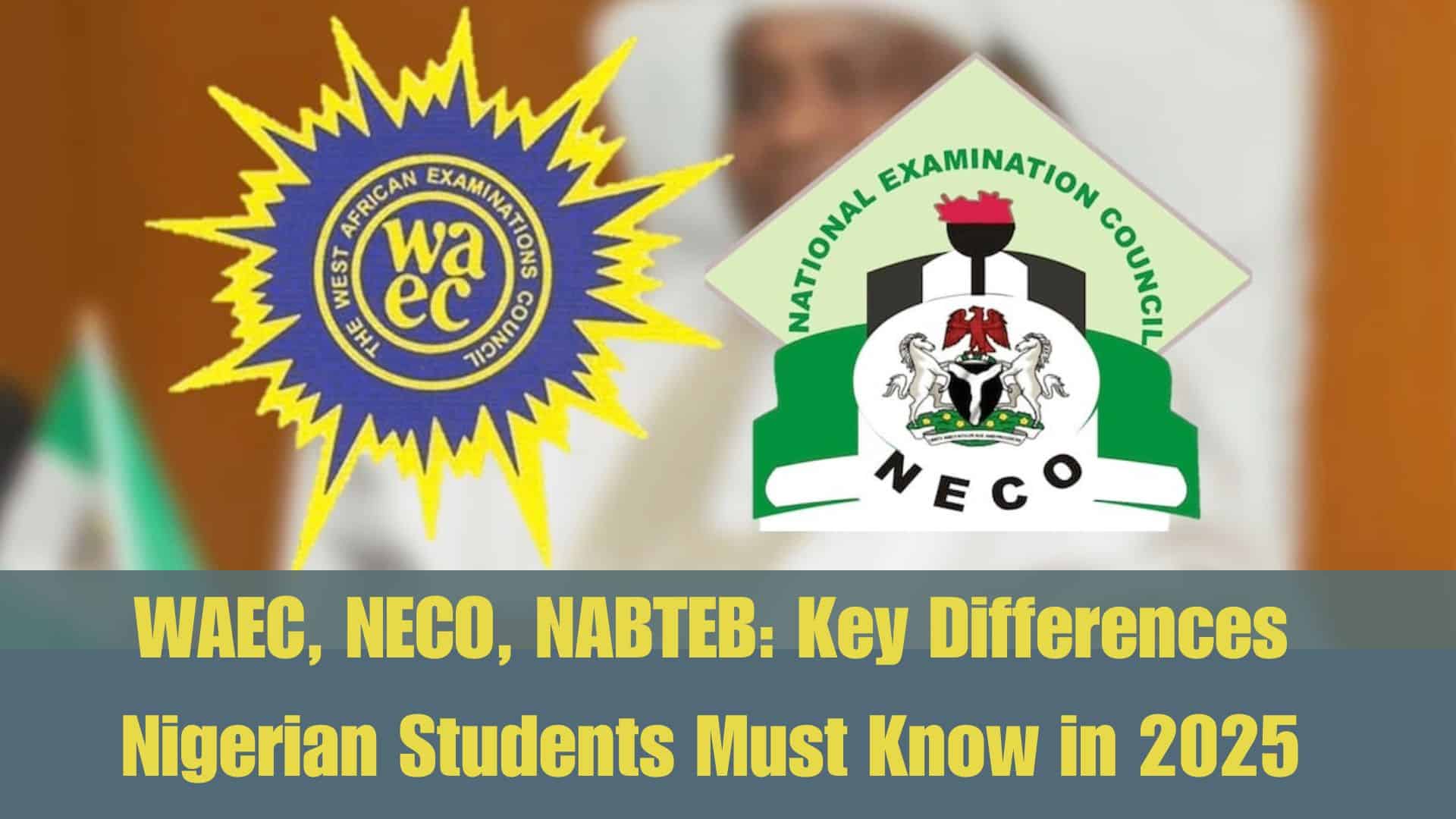For Nigerian secondary school students planning to write their final examinations in 2025, understanding the key differences between WAEC, NECO, and NABTEB is crucial. Each of these exam bodies serves a unique purpose in the academic journey and choosing the right one can impact your career path, university admission, and skill development. In this guide, we will break down everything you need to know about WAEC, NECO, and NABTEB — including their similarities, differences, recognition, and best use cases.
What Are WAEC, NECO, and NABTEB?
WAEC (West African Examinations Council)
WAEC is a regional examination body that conducts the West African Senior School Certificate Examination (WASSCE) for English-speaking countries in West Africa, including Nigeria. It is widely recognized and accepted by all universities in Nigeria and many institutions abroad.
NECO (National Examinations Council)
NECO is a federal examination body established in Nigeria. It conducts the Senior School Certificate Examination (SSCE) strictly for Nigerian students. It offers both internal (for school candidates) and external (for private candidates) exams.
NABTEB (National Business and Technical Examinations Board)
NABTEB focuses on technical and vocational education. It conducts the National Technical Certificate (NTC) and National Business Certificate (NBC) exams. It is ideal for students seeking hands-on skills or careers in trades and industries.
Key Differences Between WAEC, NECO, and NABTEB
1. Exam Coverage and Recognition
- WAEC is recognized across West Africa and by international institutions.
- NECO is limited to Nigeria, but fully accepted by Nigerian universities.
- NABTEB is recognized in technical colleges and for vocational certification in Nigeria.
2. Curriculum and Subjects Offered
- WAEC & NECO follow the Nigerian Secondary School Curriculum (science, arts, commercial).
- NABTEB focuses on technical, business, and vocational subjects, such as welding, electrical installation, typing, bookkeeping, etc.
3. Target Audience
- WAEC: General academic students seeking university admission.
- NECO: Same audience as WAEC but specific to Nigerian institutions.
- NABTEB: Students in technical colleges, polytechnic aspirants, and those pursuing skilled trades.
4. Exam Period and Flexibility
- WAEC is usually held around May–June (Internal) and October–November (Private).
- NECO exams occur in June–July (Internal) and November–December (External).
- NABTEB typically runs twice a year: May/June and November/December.
5. Difficulty Level
- All three are standard national exams, but many students perceive WAEC as more challenging due to its regional standardization.
- NECO is seen as slightly easier and often taken alongside WAEC.
- NABTEB is practical-heavy and suitable for skills-based assessment.
Which Should You Choose in 2025?
If You Want to Attend University
Choose WAEC or NECO. Most universities in Nigeria require at least five credits (including English and Mathematics) in one sitting or two sittings.
If You’re Pursuing a Skilled Trade or Vocational Career
Go with NABTEB. It prepares students for technical fields, apprenticeships, and entrepreneurship.
For Better Chances
Many students combine WAEC and NECO to increase their chances of passing all required subjects.
Frequently Asked Questions
Can I use NABTEB results to gain admission into university?
Some Nigerian universities accept NABTEB results, but it’s more commonly used for polytechnics and technical schools.
Is NECO accepted abroad?
Generally, WAEC is more recognized internationally. NECO may be accepted in some institutions, but not widely.
Can I write more than one of these exams?
Yes. Many students write WAEC and NECO the same year. Some also add NABTEB to strengthen their skillset.
Final Thoughts
Understanding the differences between WAEC, NECO, and NABTEB in 2025 will help you plan your academic journey better. Choose based on your career goals, academic strength, and future opportunities. All three exam bodies are valid, but knowing which best fits your goal is the smart way to succeed.

